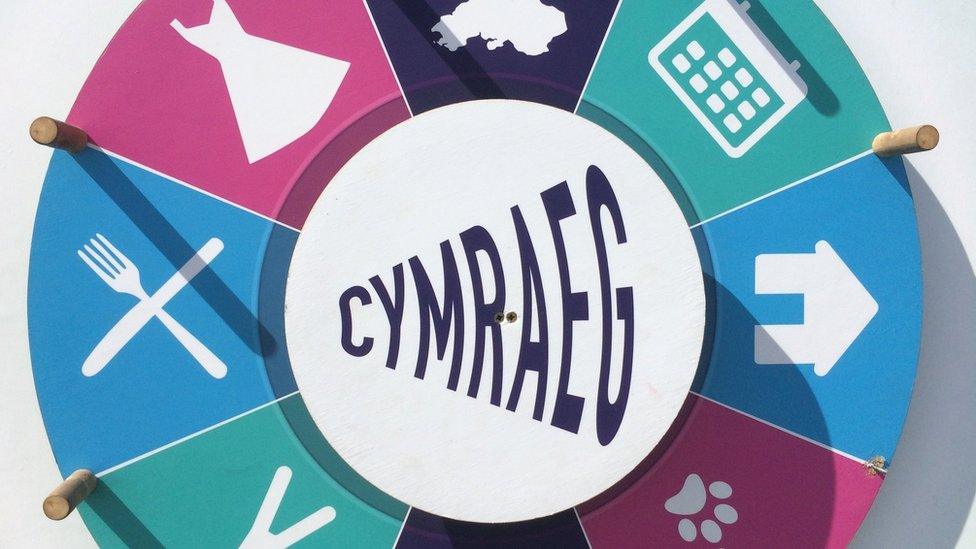Welsh language: Fewer speakers in Wales in past decade
- Published
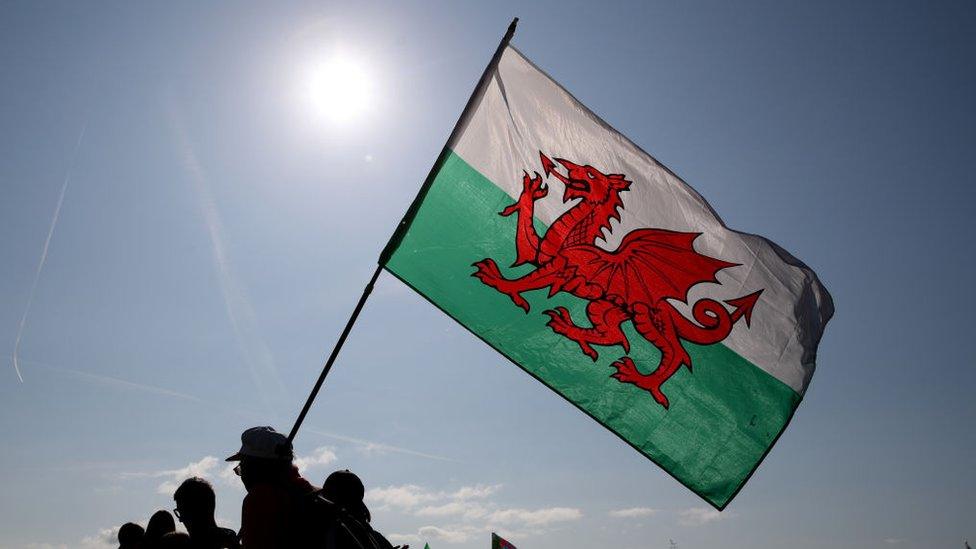
Latest figures show fewer people speak the Welsh language
The number of Welsh speakers has fallen in the past decade, with fewer children speaking the language.
In 2021 an estimated 538,000 in Wales aged three and over (17.8% of the population) said they can speak it, the Office for National Statistics found.
In 2011 562,000, or 19%, spoke it.
But after the figures were released First Minister Mark Drakeford ruled out making Welsh compulsory for all children, claiming it would set back the language.
During First Minister's Questions in the Senedd, he insisted this was not the way to securing a healthy future for the language.
"It will alienate people who are sympathetic to the Welsh language, it will set the language backwards," he said.
One of the main factors contributing to the overall decrease is fewer Welsh speakers aged three to 15.
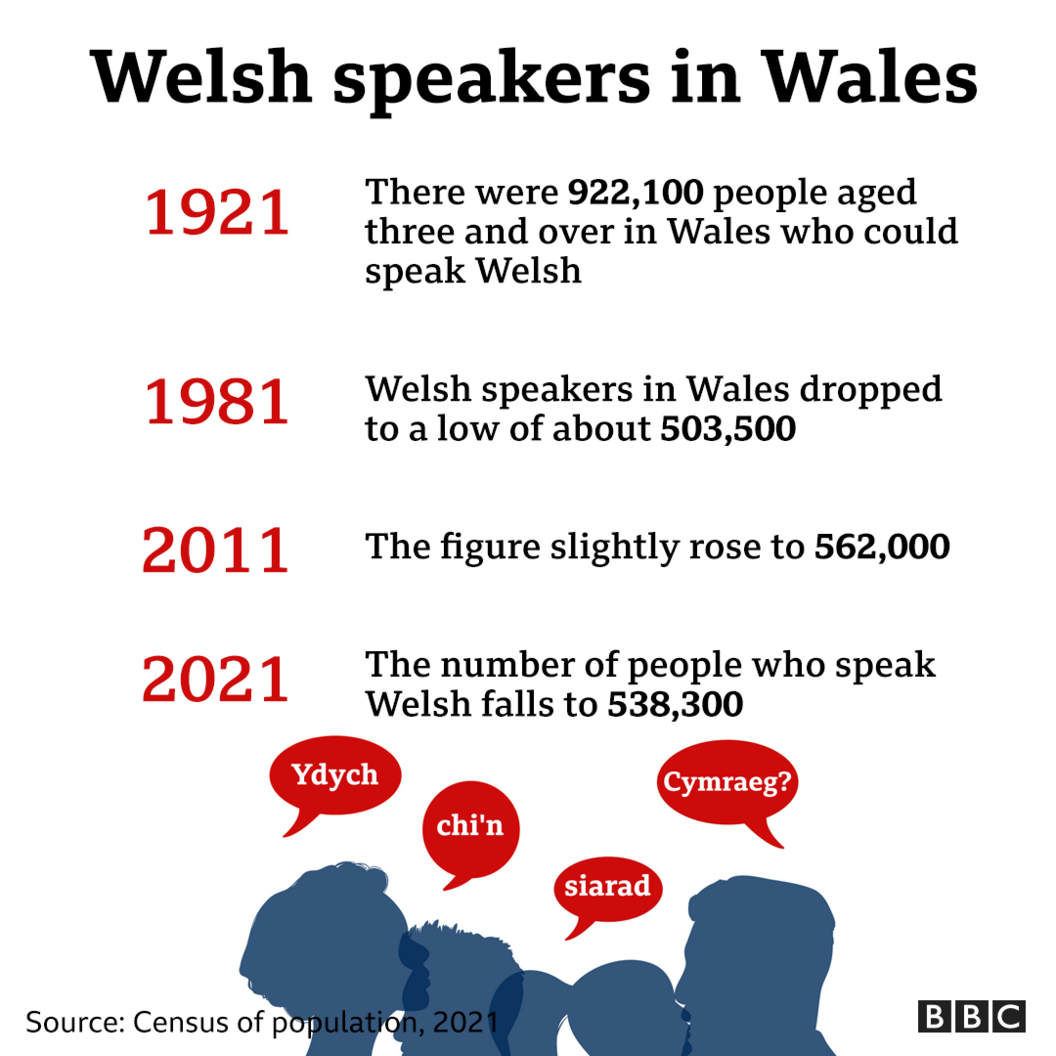
The percentage of people able to speak Welsh recorded in 2021 is the lowest ever recorded in a census.
The 2021 census was held in March that year, during the coronavirus pandemic, following periods of remote learning for children.
The Welsh government said in its analysis that it was not known how the pandemic may have affected people's reported Welsh language ability.
Deputy Welsh language commissioner Gwenith Price believed there is "considerable" work to be done to boost the language.
"The proposed Welsh Language Education Bill must therefore do more than introduce minor adjustments to the current system, and guarantee an opportunity for all learners to develop into confident Welsh speakers," she said.
She recognised the census was carried out during the pandemic and this may have affected parents' understanding of children's skills
"It would be unwise to attribute these disappointing results to the effects of the pandemic alone," Ms Price added.
Education Minister Jeremy Miles told BBC Radio Cymru's Dros Ginio he was disappointed, especially given the current enthusiasm for the language.
"These statistics are not going to make a difference to our full commitment as a government to the Welsh language strategy 2015 and the target of one million of speakers by 2050," he said.
'Use it or lose it'
Jill Little, who grew up in Ely, Cardiff, said she had no Welsh around her.
The 62-year-old has now joined an intensive Welsh course and been partnered with a Welsh speaker to help.
"It's very important. You have to keep practising. Use it or lose it as they say."
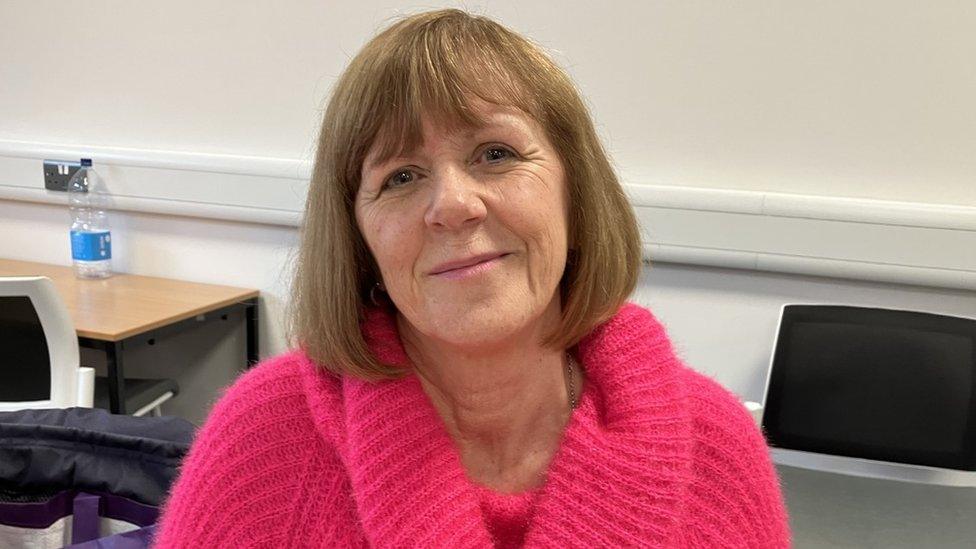
Jill Little is part of a Welsh intensive speaking course
Welsh tutor Caroline Murphy said: "I was hoping to hear more encouraging news.
"I think education is key and we need to be introducing more Welsh in schools and normalising the language and making learning it more accessible."
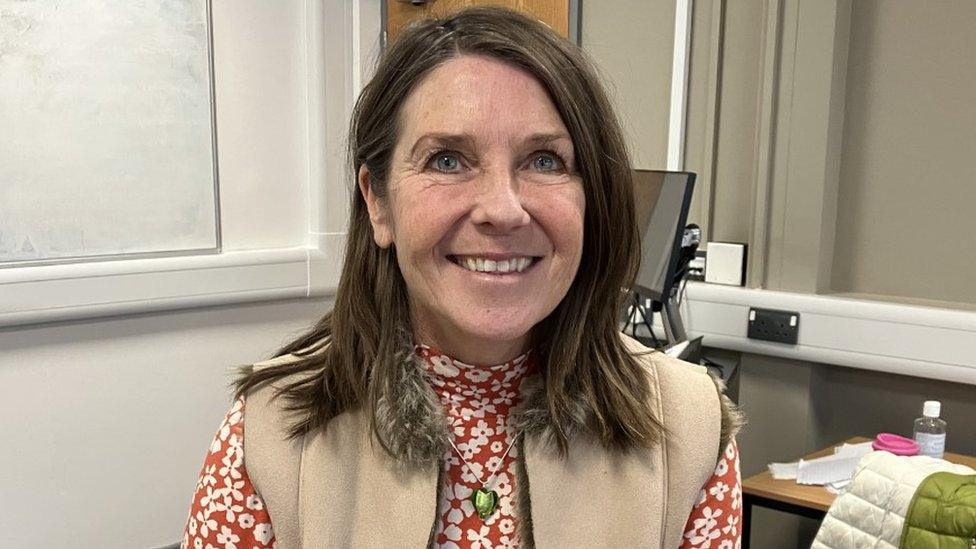
This Welsh tutor says we need to normalise the use of Welsh
The percentage of residents aged three and over able to speak Welsh decreased between 2011 and 2021 in all local authorities except Cardiff, Vale of Glamorgan, Rhondda Cynon Taf, and Merthyr Tydfil.
Carmarthenshire saw the largest decrease from 43.9% in 2011 to 39.9% in 2021. Carmarthenshire also saw the largest drop in Welsh speakers between the 2001 and 2011 census, the Welsh government said.
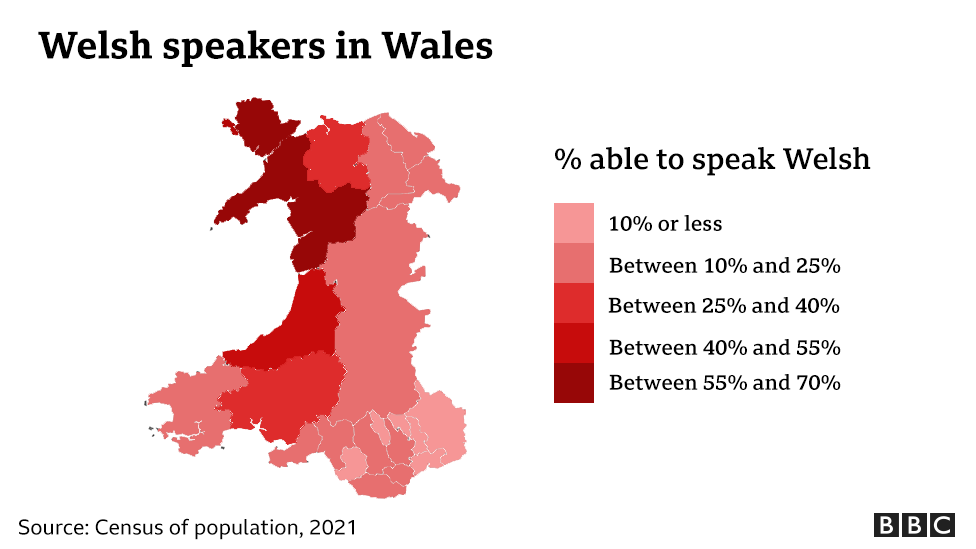
The highest percentages of people able to speak Welsh were recorded in Gwynedd and the Isle of Anglesey
Among children and young people aged three to 15, the percentage who could speak Welsh decreased in all local authorities between 2011 and 2021.
There were small increases in the percentage of people able to speak Welsh in the younger adult age groups (aged 16 to 19, and 20 to 44 respectively), with decreases for the older age groups.
The National Eisteddfod cultural festival said it was "more important than ever" to inspire people to learn "our crucially important language".
"It's essential that the Eisteddfod continues to travel in the future, so that people in all parts of Wales get a taste of our language and culture on their doorstep," said chief executive Betsan Moses.
Six years ago the Welsh government set a target to have one million speakers in Wales by 2050.
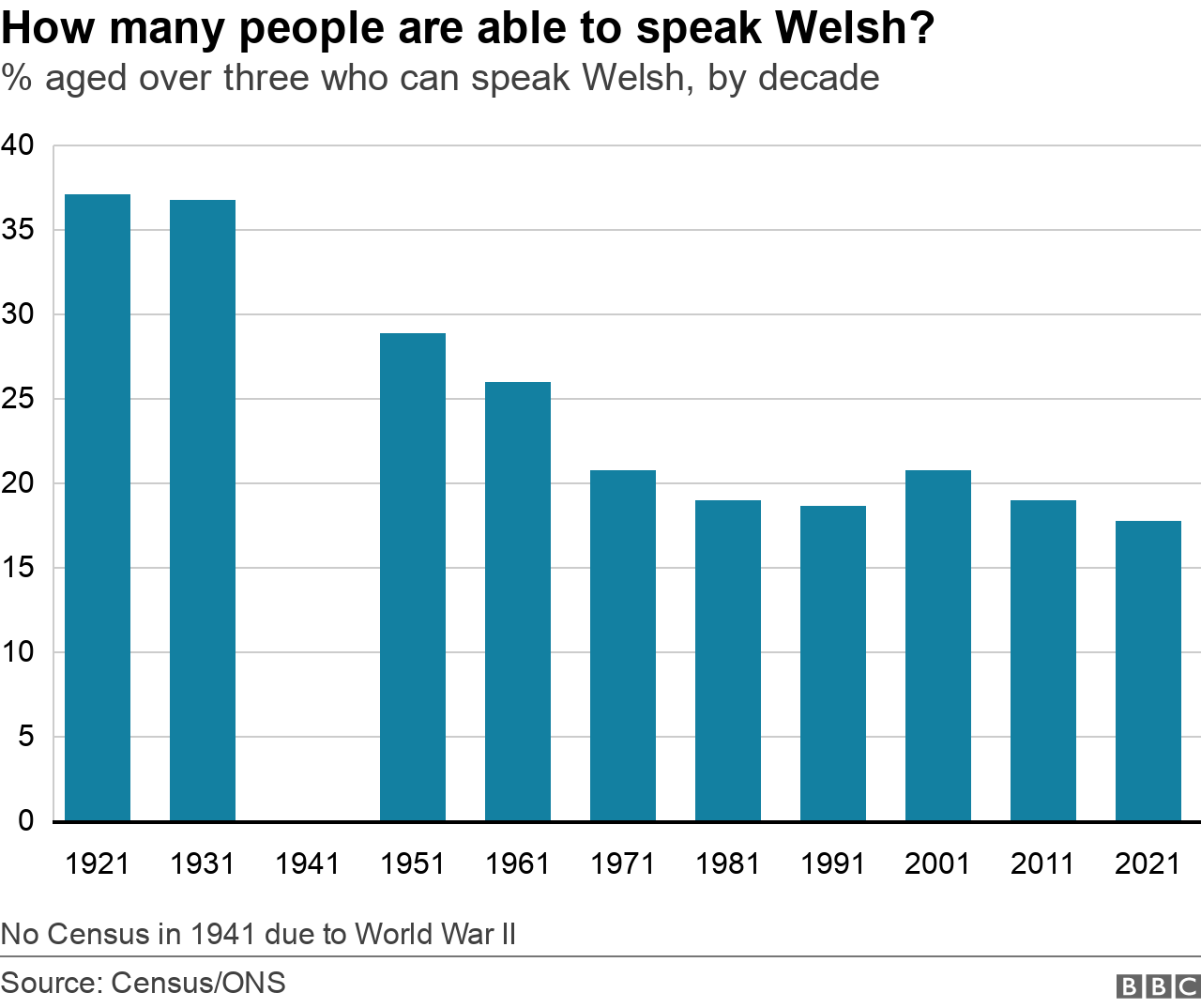
Heledd Fychan, Plaid Cymru's spokesperson for children, young people and the Welsh Language, said it was "extremely concerning" to see such a fall in the number of children speaking Welsh.
"This data shows that it's not enough to simply set a target - it needs to be backed up by action. The reality is we're now further away from Labour's goal of one million speakers by 2050 than we were 10 years ago," she said.
She said it showed the critical role of teachers with Welsh language abilities is, and investment in schools.
"We don't have enough of either, so if Welsh government are serious about reaching their target, they must ensure further investment in these areas."
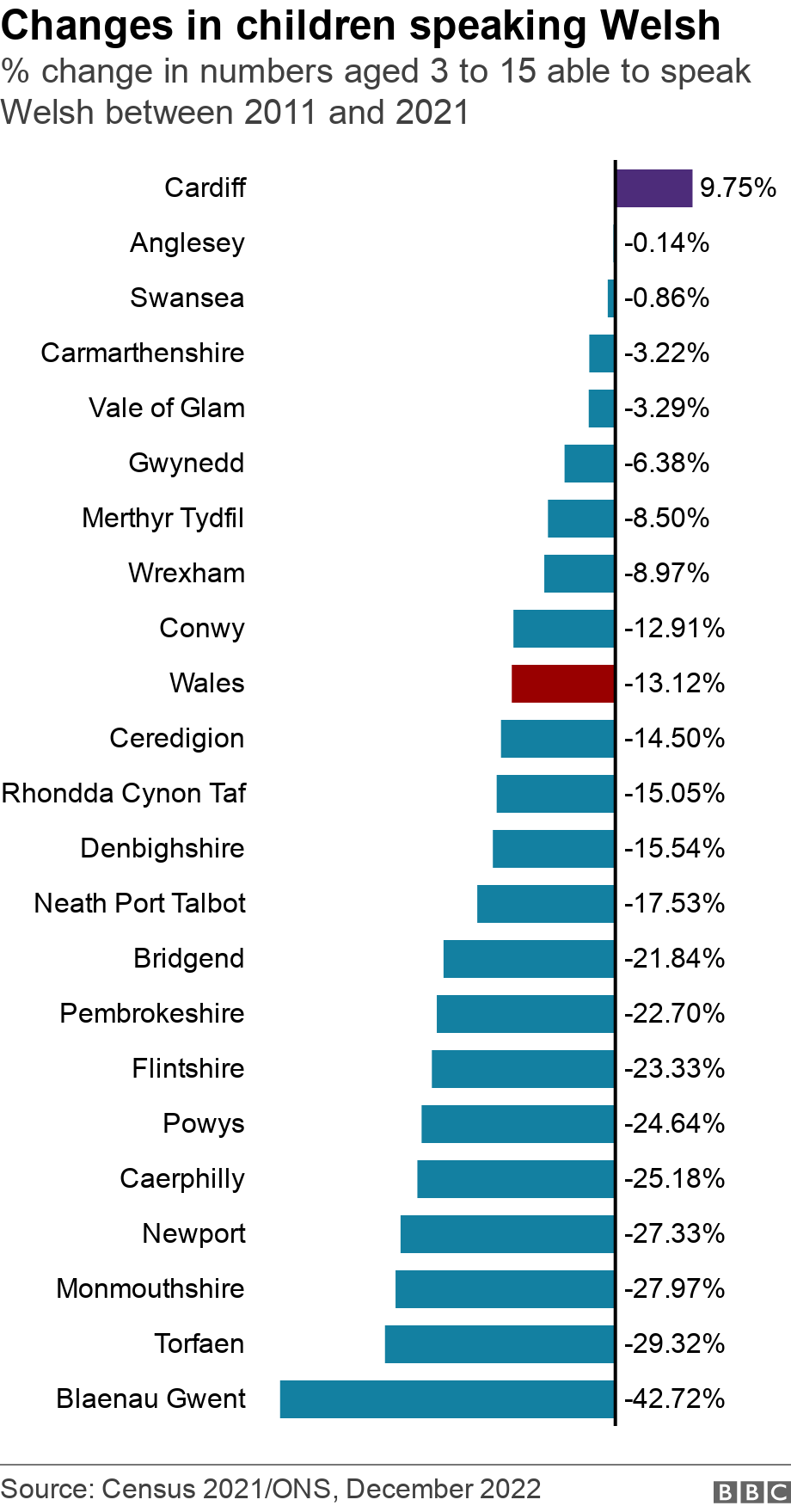
Mr Miles said there were now more children in Welsh medium education than a decade ago, "so the progress is clear in that respect".
Welsh Conservative shadow minister for the Welsh language Samuel Kurtz said the drop was "a deeply disappointing statistic that shows the Labour government is further off meeting its Cymraeg 2050 ambition than it was when it set the target of reaching a million speakers in 30 years' time".

WHO DO WE THINK WE ARE?: Huw Edwards explores the source of Wales' identity
WALES ON AIR: A unique concert reflecting life in Wales

Related topics
- Published22 August 2022
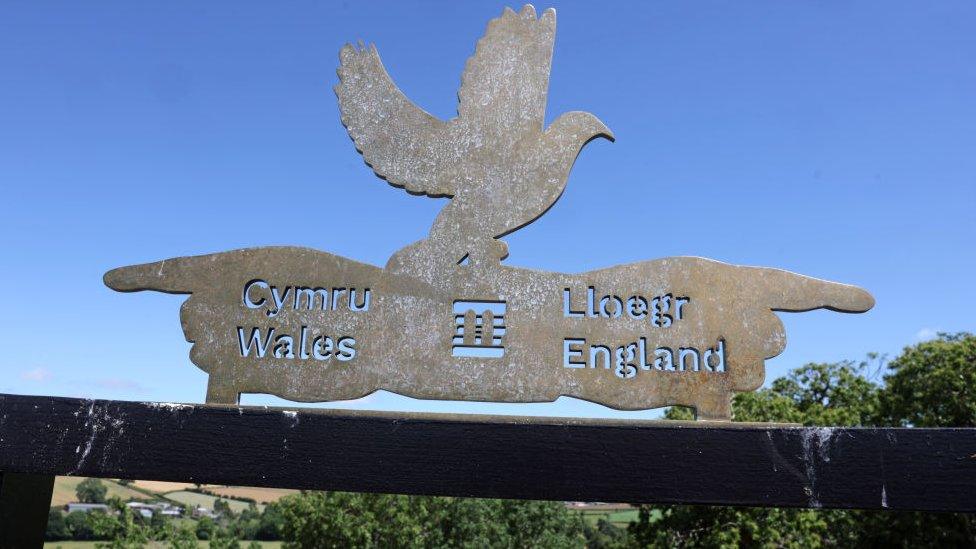
- Published5 May 2022
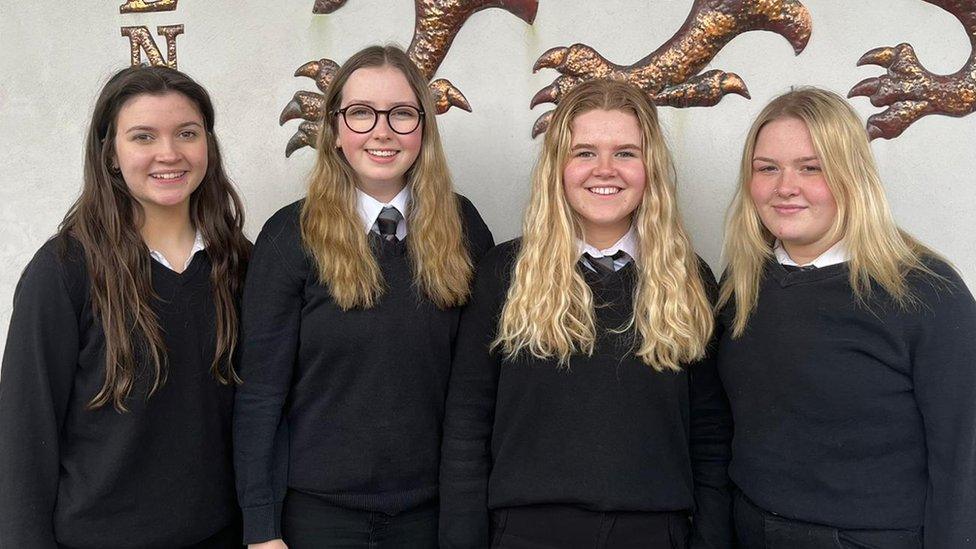
- Published13 July 2021
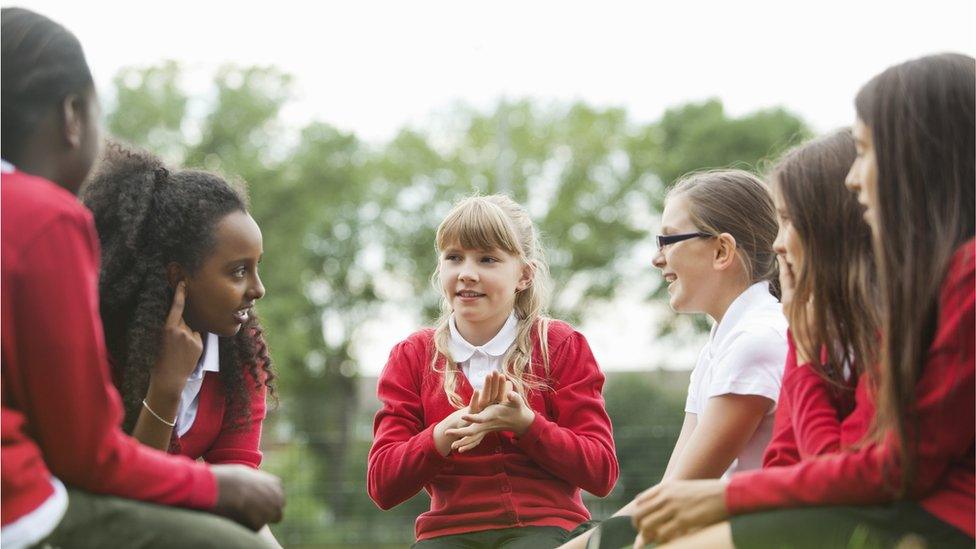
- Published12 July 2021

- Published17 December 2020

- Published8 January 2020
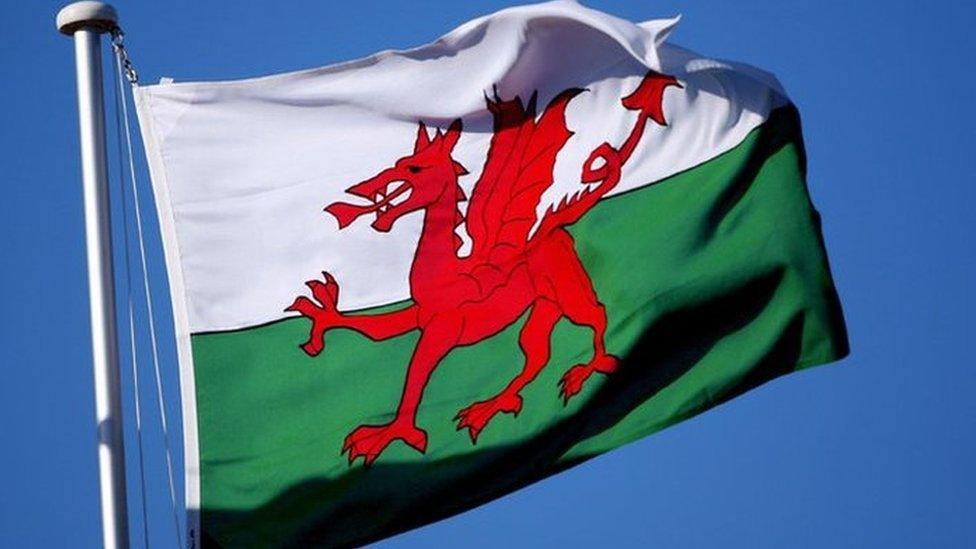
- Published26 January 2020
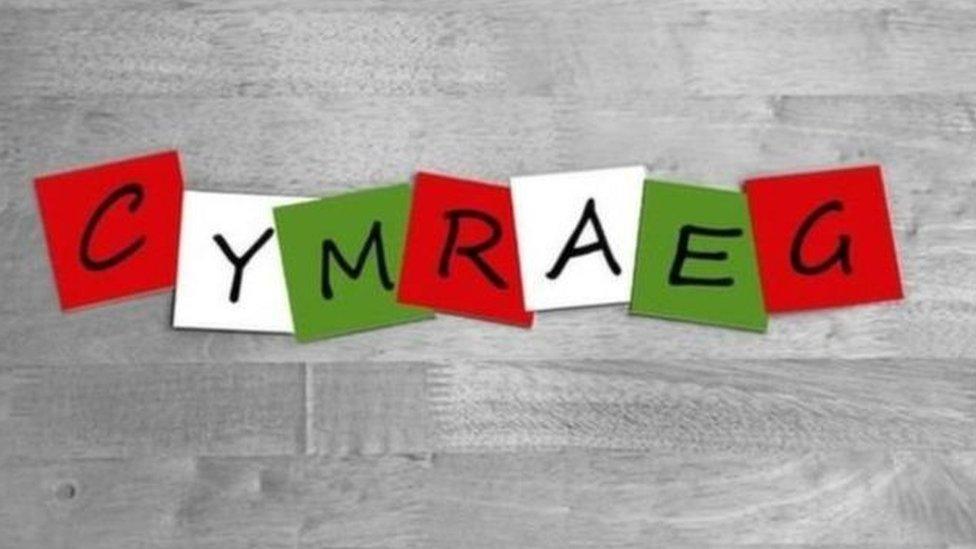
- Published2 February 2018
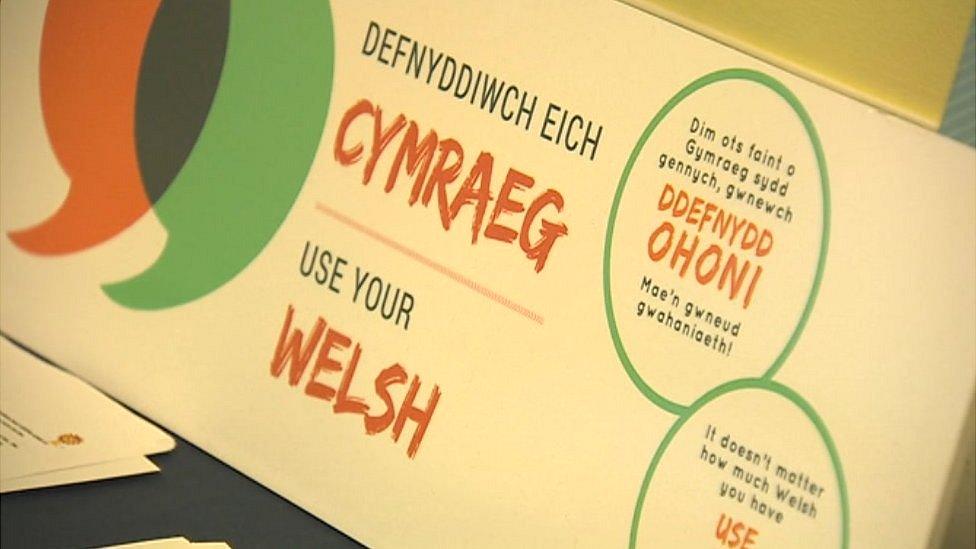
- Published11 July 2017
